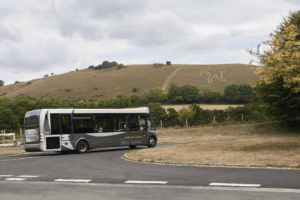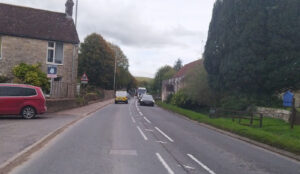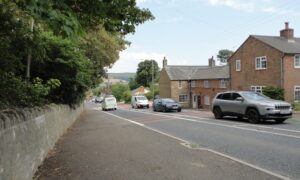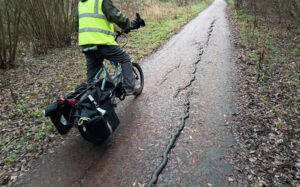Hanson has used a new reduced carbon asphalt to resurface a road in Dorset, as it explores the potential of innovative materials to help meet net zero carbon ambitions.
The trial has been completed through the Dorset Highways Strategic Partnership, an ongoing agreement with Dorset Council which facilitates innovation and collaboration.
Hanson combined its ERA warm mix asphalt with Shell Bitumen CarbonSink binder, which contains biogenic material that absorbs and stores CO2 throughout its lifecycle, to resurface the B3091 in Shaftesbury.
Duralayer Bio is manufactured at a lower temperature than standard hot mix asphalt, reducing energy requirements and carbon emissions. The inclusion of biogenic materials within the binder locks in six tonnes of CO2 in every kilometre of road, cutting emissions further. As a result, the product provides at least a 25 per cent reduction in carbon emissions compared with standard hot mix asphalt.
The low void, high bitumen content of the asphalt, coupled with the lower production temperatures, also creates a very durable material – one which can also be laid as a single layer product, increasing efficiency and reducing disruption for road users.
Gareth Cooksley, regional manager, Hanson Contracting, said: “Hanson’s route to decarbonisation has been ongoing for many years and we have a plan in place to reach our ambition of being net zero by 2050.
“Asphalt has an important part to play in this, including looking at areas like plant efficiency, the use of alternative fuels, switching to electric vehicles and, of course, low carbon asphalt products.
“Our close working relationship with Dorset Council allows us to collaborate to develop and trial innovative new solutions like Duralayer Bio that can help both parties deliver their decarbonisation goals.”
Jack Wiltshire, head of highways at Dorset Council, added: “In 2019 we declared a climate and environment emergency in Dorset, and we have since committed to being net zero by 2040.
“The highways team has committed to playing its part and we have already introduced a range of measures to reduce our carbon footprint, which include how we can reduce the embodied carbon of the asphalt laid in the Dorset Council area. “Hanson’s Duralayer Bio is an excellent example of this, and we hope it will become an important addition to our specification list.”
(Picture – Hanson)
























